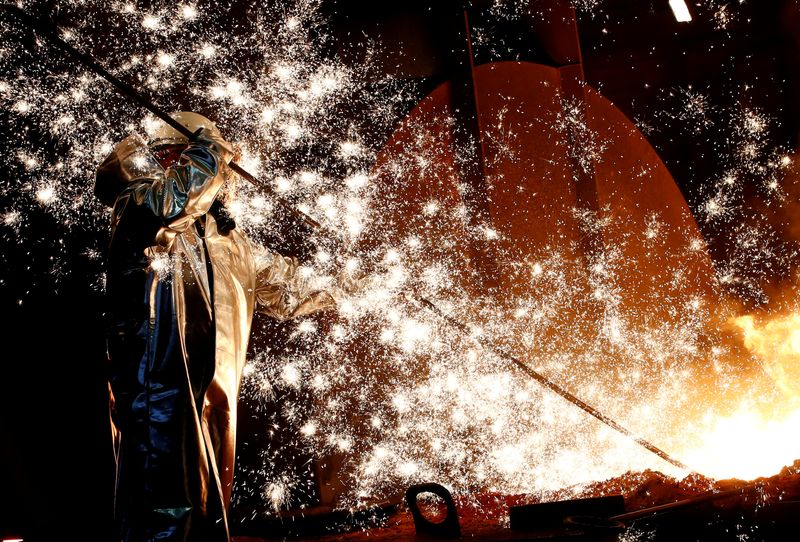BRUSSELS (Reuters) – Euro zone industrial production rose in June, official data showed on Wednesday, but the rebound after coronavirus-induced record drops in March and April was below expectations for a second straight month and slowed from May.
The manufacturing output increase was driven by a surge in production of durable goods, such as cars or fridges, in what could be seen as a positive sign of consumer confidence as COVID-19 restrictions were eased in the region.
However, the month-on-month increase was lower than economists had forecast. It slowed from May, and production remained largely below pre-crisis levels.
Manufacturing output in the 19-country currency bloc rose by 9.1% in June from May, the European Union statistics office Eurostat said, after it had increased by 12.3% in May on the month.
Economists polled by Reuters had predicted a 10.0% rise in June month-on-month. The May reading had also disappointed economists who had been expecting a 15% rise as factories reopened after lockdowns were softened.
Eurostat also slightly revised downward from 12.4% its previous estimate of industrial output in May.
In a clearer sign that the bloc’s manufacturing sector is still far from having recovered, output tumbled by 12.3% in June on the year, more than market expectations of a 11.5% fall.
The year-on-year drop was less pronounced than in May and April, confirming a gradual rebound. All countries for which data were available posted an annual drop, with the exception of Ireland where industrial output grew by 4.5% in June compared to a year earlier.
Month-on-month, production of durable goods rose by 20.2%, the highest increase among segments assessed by Eurostat.
Output of capital goods also went up significantly, by 14.2%, in what could show stronger appetite for investments among factory managers.
Production of energy went up by only 2.6%, while output of non-durable consumer goods, such a clothing or canned food, rose by 4.8% on the month.
(Reporting by Francesco Guarascio @fraguarascio; editing by Kate Abnett)



















